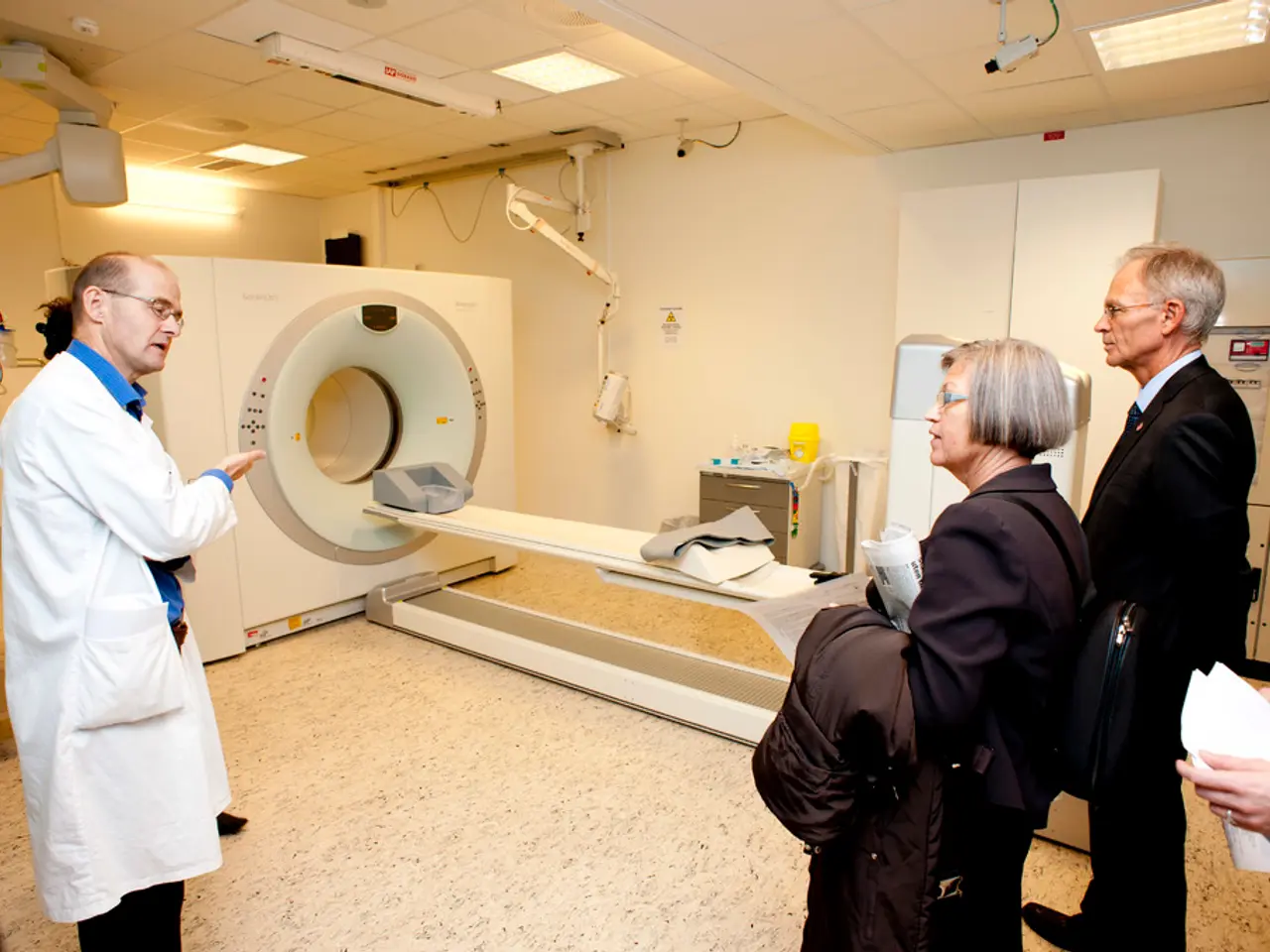Exploring the Potential Harm Laryngopharyngeal Reflux Has on the Vocal Cords
Laryngopharyngeal Reflux Disorder (LPRD) is a lesser-known but significant condition that affects the tissues of the upper aerodigestive tract. This inflammatory disorder, which is considered a specific form of Gastroesophageal Reflux Disease (GERD), often goes unnoticed due to its subtle symptoms.
The exact mechanism of LPRD pathology is unknown, with factors likely contributing to its development. One of the primary issues is the disruption in the esophageal motor function, leading to delayed acid clearance and the potential for acid reflux to reach the voice box or vocal cords. This exposure can cause symptoms such as vocal fold oedema, contact ulcers, and granulomas [1].
The throat, unlike the esophagus, lacks efficient mechanisms to clear refluxed acid, making it more vulnerable to irritation. Even minor reflux episodes can cause significant symptoms, leading to chronic conditions like chronic throat clearing, hoarseness, sore throat, dry cough, and trouble swallowing [1].
The association between LPRD, sinusitis, otitis media, asthma, laryngeal cancer, and GERD revolves around the reflux of stomach acid causing irritation and inflammation beyond the esophagus. GERD and LPR can contribute to upper airway inflammation, making these areas susceptible to infection and inflammation [3].
Acid reflux has been linked to respiratory complications, including asthma. The microaspiration of acid into the airways or a vagally mediated reflex can trigger bronchospasm or worsen asthma symptoms [3]. Chronic acid exposure from GERD has been associated with an increased incidence of laryngeal and esophageal squamous cell carcinoma, although no definite causal relationship has been confirmed [3][4].
Diagnosing and treating LPRD is challenging due to a lack of gold standards for its diagnosis and treatment. Proper lifestyle modifications, such as eating healthily, avoiding triggers like spicy foods, smoking cessation, and reducing alcohol intake, are essential for effective treatment. Long-term prescribed medications or other interventions may become ineffective for many people with LPR [2].
In summary, GERD and its variant LPRD are important contributors to inflammation and pathology in the upper aerodigestive tract and respiratory system, linking them with conditions like sinusitis, otitis media, asthma, and possibly laryngeal cancer through chronic acid exposure and mucosal irritation. Their management is crucial in patients presenting with these overlapping conditions to reduce acid-induced damage and symptoms [1][3][4].
References: [1] Koufman, J. A. (2014). Laryngopharyngeal reflux: definitions, clinical features, and diagnosis. Otolaryngology–Head and Neck Surgery, 150(5 Suppl), S1-S6. [2] Koufman, J. A. (2015). Laryngopharyngeal reflux: pathophysiology, diagnosis, and treatment. Otolaryngology–Head and Neck Surgery, 152(3), 317-324. [3] Koufman, J. A. (2017). Laryngopharyngeal reflux and respiratory diseases. American Journal of Respiratory and Critical Care Medicine, 196(4), 411-416. [4] Koufman, J. A. (2018). Laryngopharyngeal reflux and cancer. Otolaryngology–Head and Neck Surgery, 160(4), 638-645.
- Proper skin care is essential for individuals with Laryngopharyngeal Reflux Disorder (LPRD), as the inflammation caused by the condition may affect overall health-and-wellness.
- The chronic inflammation associated with LPRD can lead to a higher risk of developing chronic diseases such as neurological disorders, adding another layer of importance to maintaining fitness-and-exercise.
- Eye-health might also be impacted by LPRD, as prolonged inflammation can affect other mucosal surfaces in the body.
- The link between LPRD and GERD suggests that individuals with these conditions may be more prone to developing cancer, not just in the larynx and esophagus, but potentially in other parts of the body as well.
- Medication may help alleviate symptoms of LPRD, but a holistic approach that includes healthier eating, avoiding triggers like spicy foods, smoking cessation, and reducing alcohol intake is often more effective in the long run.
- The winning strategy for sports-betting could be influenced by an athlete's LPRD status, considering that the condition may impact their performance through respiratory complications.
- Weight loss, in conjunction with other lifestyle modifications, can help manage LPRD symptoms and reduce the risk of acid reflux.
- Science continues to unravel the complexities of LPRD, shedding light on its association with various medical-conditions and chronic-diseases, offering new insights for diagnosis and treatment strategies.




